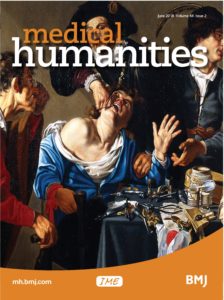
In his article for our June special issue, “Pain and its Paradoxes”, David B. Morris offers a heartfelt account of his experience occupying a “third-person position” as an end-of-life caregiver to his late wife, Ruth C. Morris, and a reflection on the role of palliative pain-relief for the dying. Remarking on how biomedicine is often blind to ‘permutations of human value and human desire’ and reflecting on recent debates regarding the over-prescription of opioids in the US and elsewhere, Morris asks whether ‘physicians, patients and cultures are now growing more fearful of opioids than attentive to pain relief at the end of life’ (2). End-of-life pain-relief is a global issue for Morris with psychosocial repercussions which involve not only patients and their physicians, but their families and caregivers. Morris underscores how biomedicine often fails to recognise the ethical dimensions of palliative pain-relief. Drawing on Edmund D Pellegrino’s assertion that the failure to offer pain-relief to the dying ‘is tantamount to moral and legal malpractice,’ Morris offers the formulation, ‘optimal pain relief for the dying!’ as a clearly articulated ethical value worthy of support (3).
In the soundbite below, Morris describes how his experience as a caregiver leads him to argue against overlooking the benefits of opioids for end-of-life pain-relief.
Read the full article on the Medical Humanities Journal website.